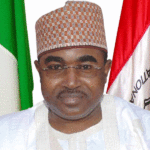When the bill sponsored by Awaji-Inombek Abiante to scrap the National Youth Service Corps (NYSC) came before the House of Rep., I watched the unfolding events with a deep sense of déjà vu.
Abiante, who represents Andoni-Opobo/Nkoro Constituency of Rivers State, said that the whole idea behind setting up the scheme is being jeopardised by the incessant killings and kidnappings of corps members in some geographical regions of the country due to ‘banditry, religious extremism and ethnic violence’. He claimed that it is even in view of these considerations that ‘the NYSC management now gives considerations to posting corps members to their geopolitical zone, thus defeating one of the objectives of setting up the service corps, i.e. developing common ties among the Nigerian youths and promotion of national unity and integration’.
- Improving the socio-economic indices of OSOPADEC environment
- Prices of goods soar over Lagos trade fair market crisis
Those of us old enough can recollect that the NYSC, even at the beginning, ran into rough waters when General Yakubu Gowon unfolded the scheme in one of his radio broadcasts to the nation. He had envisioned the scheme as one of the post-civil war measures to reconstruct, reconcile and rebuild the country. The scheme billed to take off in August 1973 was designed to be a gap year of sorts for fresh graduates of Nigerian universities to travel, live and be integrated into communities other than theirs. However, the students who would be the participants and beneficiaries didn’t buy the idea and rose in unison to reject the proposal.
The students’ unions in the six Nigerian universities; Zaria, Ibadan, Ife, Lagos, Nsukka, and Benin, all decided to go on demonstrations to back their rejection. At ABU, the demonstration was riotous and bloody. That Wednesday morning of 28th February, students trekked from Samaru to the city (about 15 kilometres) in large numbers, where they met up with other students from Kongo and other campuses to raise a great hullabaloo. And as expected, they had encounters with both the police and the army. I did not participate but my roommate and other hot heads among us did, and on their return, we were treated to a running account of the events.
Many years later, in retrospect, many would ruefully confess that it was probably the seniors who were to graduate in June 1973 that led the students’ unions by the nose to join the protest. The seniors, who were to be the first set of the scheme, naturally kicked against it because they were anxiously waiting to graduate and take up gainful employment. They were looking forward to start their families and own their houses and cars. They regarded the new scheme as an unnecessary intrusion and diversion and did everything they could to forestall it.
But when the scheme came on full swing a few months later, it was embraced wholeheartedly. The first set were feted in their states of posting like royalty. Their services were appreciated and they generally had a grand time. By the time our turn came in 1976 to serve in the 4th set of the scheme, we had had testimonies from our seniors on what exciting prospects awaited us. It did not disappoint. We eagerly looked forward to the postings. I was posted to Lagos – a place I had never seen in my life.
I travelled from Maiduguri, my home, to Kano where a brother-in-law bought a Nigerian Airways ticket for N25 (twenty-five Naira) to enable me to fly in style to Lagos. That year we were camped in Yaba College of Technology in the middle of the city. Even while camped, we were well looked after. Besides the NYSC state officials looking after our welfare, the DG himself, Col Solomon Omojokun, was a regular visitor to the camp to interact with us. The state government gave us a grand welcome by throwing a cocktail party in the Marina Government House. The Military Governor, Admiral Adekunle Lawan, mingled with and had chats with many of us, amidst free flow of food and drinks.
Majority of us had very useful attachments. I was posted to a food processing company in Onigbongbo, Maryland, on Ikorodu expressway. The company was a small-going concern and I was heavily involved in its running. I lived in Mende village, then a small fishing community, and a walking distance from my working place. I still relish the experience I gathered from that posting. The Managing Director kept in touch with me for years after. He even visited me in Maiduguri in the mid-80s, when I was in Chad Basin Development Authority and he was interested in sourcing wheat for his company. I gave him a grand tour of our project in New Marte and rounded it up with a boat trip on the Lake Chad.
I guess there would be many such positive attestations from NYSC participants over these many years, which would lead to a huge collective sigh of relief that Rep. Abiante has had a rethink and withdrawn the bill. Kidnappings and killings are consequences arising from lapses in governance. They need to be frontally attacked by all of us. The NYSC DG needs to sit with Abiante and other representatives to map out how we can better give protection to our youngsters participating in the scheme. From my perspectives, scrapping the scheme should not be an option.

 Join Daily Trust WhatsApp Community For Quick Access To News and Happenings Around You.
Join Daily Trust WhatsApp Community For Quick Access To News and Happenings Around You.


